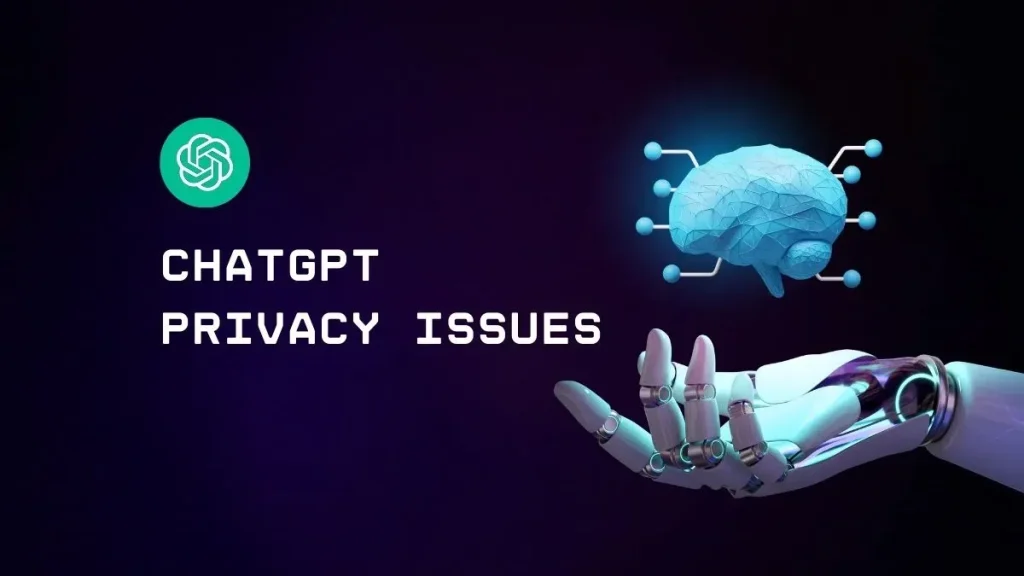As we navigate the digital landscape, understanding the potential ChatGPT privacy risks becomes increasingly crucial. These advanced AI tools, designed to assist us in various tasks, may inadvertently expose personal information, raising serious concerns about AI data privacy. With scammers continuously devising new ways to exploit technology, knowing how to protect personal information is essential in today’s digital age. Users must remain vigilant about data security and implement privacy measures with AI to safeguard against unauthorized access. As convenience often comes at a cost, addressing these risks is vital for ensuring our information remains secure.
In the realm of artificial intelligence, attention to the concealed dangers linked to tools like ChatGPT is paramount. The convenience offered by sophisticated AI applications can easily overshadow the underlying threats to user privacy. These platforms are capable of automating tasks and generating content but also pose risks, particularly concerning identity theft and data misuse. To mitigate these risks, it’s imperative to understand the measures necessary to maintain data integrity and opt for strategies that shield your personal details from malicious actors. Maintaining awareness of the potential for scams with AI tools can empower users to navigate this technology securely.
Understanding ChatGPT Privacy Risks
The emergence of AI tools like ChatGPT has revolutionized how we interact with technology, making tasks easier than ever. However, this convenience comes with significant privacy risks that users must be aware of. When you engage with ChatGPT, your queries are processed to generate responses, but the application might also unintentionally capture sensitive data. This raises concerns about data security and the potential for personal information to be misused by ill-intentioned individuals. Therefore, understanding the privacy risks associated with such conversations is paramount to safeguarding your identity.
Moreover, the risk is not just theoretical; hackers and scammers can exploit data gathered from AI interactions. If someone clever phrases their queries, they may extract detailed information without users realizing it. This includes inappropriate usage of personal data or even phishing attempts under the guise of seemingly benign interactions with AI tools. To prevent this, users must take precautions, such as limiting personal details shared with AI and being vigilant about the information they provide in queries.
Protecting Personal Information Online
As AI tools become increasingly integrated into our daily lives, understanding how to protect personal information is more crucial than ever. Users should adopt strategies that manage their digital footprint effectively. This includes taking proactive steps such as opting out of people-search sites, which often expose personal details to data brokers. By ensuring that your information is minimized online, you can significantly reduce the chances of it falling into the wrong hands, allowing you to interact with AI tools like ChatGPT with greater confidence.
Furthermore, being cautious about what you share with AI tools goes beyond just personal data. Consider the implications of sharing your preferences or habits, which are useful for generating tailored responses but can also be gathered and misused by third parties. The necessity of context-aware sharing highlights the importance of a conscious approach to privacy. Establishing privacy measures, such as strong password protection or utilizing services that manage data removal requests, can empower users to regain control over their online presence.
Understanding Data Brokers and Their Impact
Data brokers are often overlooked in discussions about privacy, yet their impact can be significant. These companies aggregate data from various sources, including social media, public records, and even your interactions with AI tools. The information compiled can paint a detailed picture of you, often without your consent. By understanding the role these brokers play, users can better appreciate the necessity of implementing robust privacy measures, such as opting out and regularly monitoring their online profiles.
The challenge lies in navigating a landscape filled with numerous data brokers, each with their own processes for data removal. Many individuals are unaware of how much information is available to these entities or that they can take steps to limit that access. Additionally, the growing relevance of AI in data harvesting means that users must remain vigilant and proactive in controlling what is available about them online. Regularly using tools to search and manage data broker sites equips users with an understanding of their online presence and safety.
Utilizing AI Tools to Enhance Privacy
While AI tools are often viewed as threats to privacy, they can also play a vital role in enhancing data security. Tools that scan for personal information across different data broker sites can help you identify what information is publicly accessible and how to manage it. Utilizing these AI-driven solutions not only saves time but also provides users a clearer picture of their digital footprint. This proactive use of technology can arm you with the insights needed to take action against unwanted data exposure.
Furthermore, AI tools can assist in automating privacy measures, such as filing opt-out requests to people-search sites. Many services exist that will use AI to send multiple requests on your behalf, simplifying the previously tedious and time-consuming process of data removal. By leveraging these capabilities, individuals not only save time but can also protect their data more comprehensively. Being strategic with AI tools allows users to maintain a balance between enjoying the benefits of AI while safeguarding their information.
The Importance of Social Media Privacy Settings
Social media platforms are among the primary sources of personal data for both hackers and data brokers. By adjusting privacy settings, users can significantly limit the accessibility of their profiles to outsiders. This step is critical in preventing unnecessary exposure when engaging with AI tools. For example, making a profile private ensures that only authorized followers can view your posts, reducing the risk of data being harvested by malicious actors.
Moreover, being selective about friend or follower requests can help fortify your online presence. Scammers often create fake accounts to gather information, and maintaining a controlled circle of connections can prevent such occurrences. Furthermore, regularly reviewing and updating social media privacy settings is essential as platforms frequently modify their features and defaults. By staying informed and vigilant, you can ensure that your personal information remains secure.
Creating Strong Passwords to Safeguard Accounts
The foundation of digital security lies in the strength of your passwords. Using strong, unique passwords for AI and social media accounts can significantly enhance your protection against unauthorized access. Password managers can help generate complex passwords and store them securely, taking the burden of memory off your shoulders and minimizing the liability of using easily compromised passwords.
Moreover, utilizing two-factor authentication (2FA) wherever available adds an additional layer of security to your accounts. Even if a hacker manages to obtain your password, an extra verification step can prevent unauthorized access. This holistic approach to password management can greatly reduce the chances of identity theft, contributing to better overall data privacy as users continue to engage with tools like ChatGPT.
Benefits of Utilizing Data Removal Services
In today’s digital age, data removal services have emerged as effective tools for individuals wishing to reclaim their online privacy. By leveraging these services, users can submit multiple opt-out requests to various people-search sites simultaneously, which would be impractical to do manually. This service proves invaluable in combating the data monopolies that thrive on public information, facilitating a more streamlined approach to securing personal data.
Additionally, these services often provide ongoing monitoring, alerting users when their information reappears online. Utilizing data removal services not only saves time but also provides peace of mind in a world where data exploitation is rampant. By investing in professionals who specialize in privacy management, individuals can stay ahead of potential privacy breaches and maintain a firmer grip on their personal information.
AI and Scams: Recognizing the Threat
As AI tools like ChatGPT gain popularity, the potential for scams using these technologies also increases. Scammers are increasingly employing advanced AI techniques to craft convincing phishing messages or to manipulate users into disclosing sensitive information. Recognizing these threats is crucial; understanding how scammers may utilize AI-generated texts can help you approach unforeseen interactions with caution.
Moreover, being aware of the various types of scams, such as those imitating familiar brands or utilizing social engineering tactics, is vital in building defense strategies. Awareness and education around AI-powered scams can significantly reduce user vulnerability. By staying informed about the latest scam tactics, users can better protect themselves and their personal information when interacting with AI tools.
Final Thoughts on AI and Privacy
In conclusion, while AI tools like ChatGPT foster efficiency and creativity, they also pose considerable privacy and security risks that users cannot afford to overlook. It is essential to adopt a proactive stance, implementing effective privacy measures, and staying updated about the risks associated with utilizing such technologies. Understanding how to protect personal information and recognizing potential threats can ensure a safer interaction with AI tools.
In summary, taking control of your digital presence by understanding your information exposure and the steps necessary to safeguard it is crucial in this AI-driven landscape. With robust privacy-protecting strategies, individuals can continue to reap the benefits of AI without compromising their security. Education and vigilance are key in mitigating privacy risks associated with the fascinating capabilities of AI.
Frequently Asked Questions
What are the privacy risks associated with using ChatGPT?
Using ChatGPT comes with privacy risks, primarily because it may inadvertently expose personal data during interactions. The AI processes your input to generate responses, which could lead to unintentional sharing of sensitive information if not carefully managed.
How can I protect my personal information while using AI tools like ChatGPT?
To safeguard your personal information while using AI tools, avoid sharing sensitive details like your full name, address, or financial information. Additionally, regularly check your social media privacy settings and consider using strong passwords for your accounts.
What measures can I take to prevent scams with AI tools?
To prevent scams with AI tools, be cautious about the information you share and only use reputable AI platforms. Familiarize yourself with common AI-related scams and stay vigilant for signs of phishing or fraudulent requests.
How does AI data privacy relate to my online presence?
AI data privacy is directly tied to your online presence since AI tools, like ChatGPT, source information from publicly available data. Protecting your online footprint by limiting what you share on social media and opting out of people-search sites can enhance your data privacy.
What are the best privacy measures I can implement when using ChatGPT?
The best privacy measures include using strong and unique passwords for your AI accounts, opting out of data broker sites, and being mindful of the personal information you provide during chats. Using antivirus software can also help secure your devices against threats.
Can ChatGPT collect data on its users?
ChatGPT, like many online services, may collect user data to improve its functionality and service. It’s crucial to review privacy policies to understand what data is collected and how it’s used, ensuring that you are aware of any associated risks.
What should I do if I suspect my data has been compromised while using AI tools?
If you suspect your data has been compromised, immediately change your passwords, enable two-factor authentication, and monitor your accounts for unusual activity. You may also want to contact the AI service provider for assistance and consider using data removal services.
How can I mitigate data security risks when interacting with AI like ChatGPT?
To mitigate data security risks, always secure your AI accounts with strong passwords and enable two-factor authentication. Be cautious about the information you share, and regularly review and adjust your security settings on associated platforms.
Are there specific data removal services for protecting my AI interactions?
Yes, there are data removal services that assist in removing personal information from data broker sites that may collect and share your data. These services can save you time and efforts in managing your online privacy effectively.
| Key Point | Description |
|---|---|
| ChatGPT and Privacy Risks | ChatGPT simplifies tasks but poses privacy risks if sensitive data is shared. |
| Data Collection from Searches | AI tools can access data from public sources, exposing personal information if not properly managed. |
| Steps to Protect Privacy | Opt out of people-search sites, be cautious with shared information, and secure AI accounts for better protection. |
| Using Removal Services | Engaging data removal services can automate and simplify the process of protecting personal data from exposure. |
| Social Media Safety | Adjust privacy settings on social media to limit exposure to data brokers and safeguard information. |
Summary
ChatGPT privacy risks are significant as the convenience of using AI tools can lead to unintentional data exposure. To navigate these risks effectively, users must take proactive measures to safeguard their personal information when interacting with such technologies. By being vigilant about what they share and applying privacy-focused practices, individuals can enjoy the benefits of AI tools while keeping their data secure.



